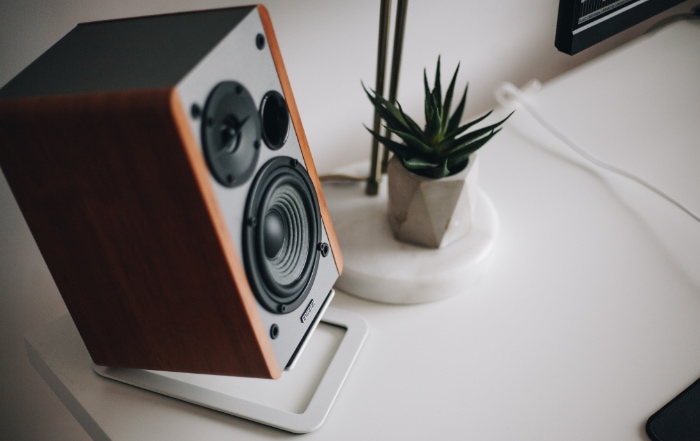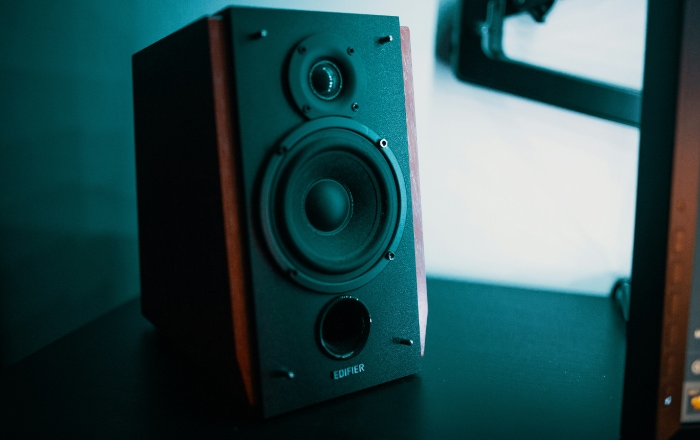Why Are My Speakers Buzzing? Uncover the Causes

Speakers buzzing can be a frustrating and perplexing issue for audiophiles, home theater enthusiasts, and casual listeners alike. This common problem, characterized by an annoying humming or buzzing sound emanating from speakers, often arises unexpectedly and can significantly diminish the quality of your audio experience.
Whether it’s during a crucial scene in a movie, in the middle of a favorite song, or while hosting a gathering, speaker buzzing can disrupt the moment and leave you searching for solutions.
Understanding Speaker Buzzing
Speaker buzzing is a common issue that can affect various audio systems, ranging from high-end home theaters to simple desktop speakers. This disruptive sound is not just an inconvenience but can also be an indicator of underlying issues in your audio setup.
Characteristics of Speaker Buzzing
Buzzing in speakers typically presents as a continuous low-frequency humming or a series of intermittent crackles. This noise differs from the usual audio output and is often heard even when no audio is being played.
The intensity of the buzzing can vary, sometimes depending on the volume level or the audio content being played.
Types of Buzzing Sounds
Understanding the different types of buzzing sounds can be crucial in diagnosing the issue:
- Constant Humming: A steady, low-frequency sound that often indicates electrical issues.
- Intermittent Crackling: Random crackles or pops that may suggest connection problems.
- High-Pitched Whining: A continuous high-frequency noise, possibly due to interference from other electronic devices.
Analyzing the Causes
Several factors can contribute to speaker buzzing:
- Electrical Interference: External sources like power lines or appliances emitting electromagnetic fields can interfere with your speaker’s normal operation.
- Poor Connections: Loose or damaged cables and connectors can cause inconsistent audio transmission, leading to buzzing sounds.
- Internal Speaker Damage: Over time, speakers may develop internal faults due to wear and tear or exposure to high volumes, resulting in a buzzing noise.
Diagnostic Approaches
Identifying the exact cause of speaker buzzing involves a process of elimination:
- Inspecting Cables and Connections: Ensuring all connections are secure and cables are in good condition is a primary step.
- Isolating the Speakers: Testing the speakers independently from other components can help determine if the issue is internal or external.
- Checking for External Interference: Moving the speakers away from potential sources of electromagnetic interference can reveal if they are the cause of the buzzing.
Electrical Interference as a Cause
Electrical interference is one of the primary culprits behind speaker buzzing. This phenomenon occurs when an external source of electromagnetic energy disrupts the normal operation of electronic devices, including speakers.
Impact of Electrical Interference on Speakers
When speakers are subjected to electrical interference, it can manifest as a buzzing or humming noise. This interference typically comes from two sources:
- Radio Frequency Interference (RFI): Caused by devices that emit radio waves, such as cell phones, Wi-Fi routers, or even radio transmitters.
- Electromagnetic Interference (EMI): Stemming from the electrical power grid or devices that draw a significant amount of power, like refrigerators or air conditioners.
Identifying Electrical Interference
Determining whether electrical interference is causing your speaker to buzz involves a few key steps:
- Proximity to Other Devices: If the buzzing noise increases when near certain electronic devices or appliances, it could be a sign of interference.
- Changes in Buzzing Intensity: Notice if the buzzing fluctuates with the use of other electronic devices in your home or office.
- Testing in Different Locations: Moving the speaker to a different location can help identify if the interference is localized to a particular area.
Shielding and Grounding
To mitigate the impact of electrical interference, consider the following:
- Use of Shielded Cables: Cables designed to protect against electromagnetic interference can significantly reduce buzzing.
- Proper Grounding: Ensuring that all audio equipment is properly grounded can help minimize the effects of interference.
- Strategic Placement: Positioning speakers away from known sources of RFI and EMI can also be effective.
Advanced Troubleshooting
For persistent issues, more advanced techniques might be necessary:
- Power Conditioners: Devices that clean and stabilize the power supply can reduce interference.
- Professional Assessment: In some cases, an expert’s evaluation might be needed to identify and resolve complex interference issues.
Ground Loop Issues
Ground loops are a less commonly known, yet significant, cause of buzzing in speakers. These occur when there is a difference in electrical potential between grounding points in an audio system.
Understanding Ground Loops
A ground loop happens when two or more devices are connected to a common ground through different paths. The disparity in the electrical potential between these paths creates an unwanted current flow, which can manifest as a buzzing sound in speakers.
How Ground Loops Cause Buzzing
The current generated by a ground loop often interferes with the audio signal, leading to a low-frequency hum in the speakers. This sound is usually continuous and can vary in loudness depending on the severity of the ground loop.
Diagnosing Ground Loop Problems
Identifying a ground loop issue involves several steps:
- Observing Noise Patterns: A constant, low hum that doesn’t fluctuate with changes in audio or volume levels is a typical indicator of a ground loop.
- Checking Connections: Inspect if multiple devices in your audio setup are connected to different electrical outlets, as this can often lead to ground loops.
- Isolation Test: Temporarily disconnecting devices from the audio setup can help identify the source of the ground loop.
Solutions for Ground Loop Issues
Addressing ground loop problems effectively can involve several strategies:
- Unified Grounding: Ensure all components of your audio system are connected to the same electrical circuit to maintain a uniform ground.
- Ground Loop Isolators: These devices are designed to break the loop and eliminate the hum by isolating the ground paths.
- Cable Management: Properly routing and managing cables can help reduce the chances of creating ground loops.
Speaker and Cable Quality

The quality of speakers and cables plays a crucial role in the overall sound performance of any audio system. Poor-quality components can be a significant source of buzzing, distorting the audio experience.
Impact of Speaker Quality
The build and design quality of speakers directly influence their sound output. Lower quality speakers may not only have inferior sound clarity but are also more susceptible to issues like buzzing.
This can be due to substandard materials, poor construction, or inadequate shielding against interference.
Role of Cables and Connections
Cables are the lifelines of any audio setup, responsible for transmitting sound signals. The following factors are essential in maintaining sound integrity:
- Cable Condition: Frayed or damaged cables can lead to poor signal transmission, causing buzzing.
- Cable Type: Some cables are better shielded and designed for high-quality audio transfer, reducing the risk of interference.
- Connection Quality: Loose or corroded connections can interrupt the audio signal, resulting in noise.
Checking and Upgrading Speaker Components
Regular inspection and maintenance of speakers and cables can prevent buzzing:
- Inspecting for Damage: Regularly check for visible signs of wear or damage to both speakers and cables.
- Quality of Materials: Consider upgrading to higher-quality cables and speaker components that offer better performance and longevity.
- Secure Connections: Ensure all connections are tight and clean to maintain a clear signal path.
Evaluating Compatibility
It’s important to ensure that all components in the audio setup are compatible:
- Impedance Matching: Ensuring speakers and amplifiers have compatible impedance ratings prevents strain on the system.
- Connector Types: Using the correct type of connectors for your setup can enhance the connection quality.
The Link Between Quality and Performance
Investing in quality speakers and cables can significantly improve the overall audio experience. Not only does it reduce the likelihood of buzzing, but it also enhances the clarity and fidelity of the sound.
High-quality speakers and cables are foundational to a buzzing-free, clear, and enjoyable audio experience. Regularly maintaining and potentially upgrading these components can lead to a noticeable enhancement in sound quality.
External Devices and Connections
External devices and their connections to your audio system can be a significant source of buzzing in speakers. From smartphones and Wi-Fi routers to other household electronics, these devices can introduce interference that affects audio quality.
Understanding the influence of these external factors and how to manage them is crucial in maintaining a clear and buzz-free sound.
Influence of External Devices
Many everyday electronic devices emit electromagnetic fields or radio frequencies that can interfere with your speakers. This interference can result in a range of noises, including buzzing, humming, or static.
Common Culprits of Interference
Some typical external devices known to cause interference include:
- Smartphones and Tablets: These devices, especially when receiving calls or messages, can introduce interference.
- Wi-Fi Routers and Modems: Their radio frequency emissions can interfere with speaker operations.
- Other Household Electronics: Devices like microwaves, fluorescent lights, and even refrigerators can create electromagnetic interference.
Troubleshooting Steps
To identify and mitigate interference from external devices, consider the following steps:
- Repositioning Speakers: Moving speakers away from potential sources of interference can reduce or eliminate buzzing.
- Isolating Devices: Temporarily turning off or moving other electronic devices can help pinpoint the source of interference.
- Cable Management: Properly routing and shielding cables can minimize their exposure to interference.
Strategic Placement of Speakers and Devices
Careful placement of speakers and other electronic devices in a room can significantly reduce the risk of interference. Creating distance between speakers and known sources of electromagnetic emissions is often an effective strategy.
Optimizing Connection Quality
Ensuring that your speakers are connected using high-quality, well-shielded cables can further reduce the likelihood of interference from external devices. Additionally, using the correct type of connectors and ensuring secure connections can also improve sound quality.
Minimizing Interference for Optimal Sound
By being mindful of the placement and connections of external devices, it is possible to significantly reduce unwanted noise in your speakers. Addressing these external factors is an essential step in achieving a clear and enjoyable audio experience.
Conclusion
Speaker buzzing, a common issue faced by many, can arise from a variety of causes, each requiring a different approach for resolution. Throughout our discussion, we have explored several key factors that contribute to this problem: electrical interference, ground loop issues, the quality of speakers and cables, the impact of external devices and connections, as well as the influence of the audio source and format.
By understanding these different aspects, you can effectively diagnose and address the root causes of speaker buzzing. Regular maintenance and mindful setup of your audio equipment play a crucial role in ensuring optimal sound quality and longevity.
Ultimately, tackling speaker buzzing is about enhancing your listening experience, ensuring that each note and sound is as clear and enjoyable as intended.


